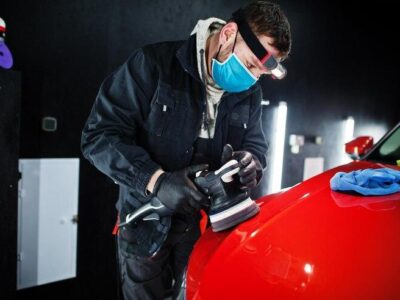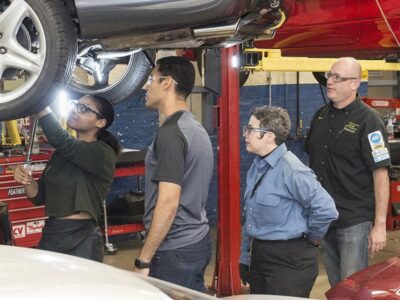California has one of the most consumer-friendly lemon laws in the nation. Under the Song-Beverly Consumer Warranty Act – or California lemon law – customers who purchase defective vehicles are legally entitled to a refund or a replacement at the manufacturer’s expense, assuming it meets the legal criteria.
But as much as we’d love to say that every lemon law claim is a smooth ride, earning fair compensation for a defective vehicle is not like exchanging an item at Walmart. There are several factors that can impact your success—and plenty of hurdles between you and the compensation you deserve.
Still, if you know what you’re up against, you’ll have a better chance of making it through the process hassle-free. Let’s explore the five key factors that can influence your lemon law claim, and how you can boost your chances of winning.
The Number of Repairs or Repair Attempts
California’s lemon law requires you to make a “reasonable” number of attempts to fix your car before you can file a claim. In other words, you’ll probably need to take it back to the dealership or mechanic a few times for the same problem.
But what counts as “reasonable”?
Typically, if you’ve made at least two attempts to fix a serious issue (like engine or transmission problems), or if your car has been in the shop for 30 or more cumulative days, you’re in the clear to file a lemon law claim.
Make sure to keep all receipts, work orders, and used parts from each of your repair appointments. These documents are key to building a strong case, so hand them over to your CA lemon law lawyer for review.
IMPORTANT: always take your vehicle to a manufacturer-certified repair facility. If you go a 3rd party repair shop, you risk voiding your warranty—and that could derail your entire claim.
The Severity of the Defects
Minor problems, like a busted car radio or a squeaky door, are frustrating, but they don’t necessarily put you in lemon law territory. For your vehicle to be considered a lemon, the defect has to substantially affect its usability, value, or safety.
Major issues like engine trouble, transmission failure, or brake problems are the types of defects that can strengthen a lemon law claim. If you’re dealing with something along those lines, your case will likely be much stronger.
Whether the Car is Under Warranty
CA lemon laws typically apply to vehicles that are still covered by the manufacturer’s original warranty, or in some cases, an extended warranty.
However, there are exceptions.
Automakers are notorious for dragging their feet when it comes to lemon law claims. Some believe this is a tactic to waste time, hoping the consumer would give up and take a small cash settlement.
If your vehicle starts acting up near the end of the warranty, the most important thing is to report the defect while it’s still covered. As long as the issue is reported during the warranty period, you’re still eligible to file a claim —even if the warranty expires while repairs are underway.
When you report the problem and take your car in for repairs, be sure to gather and keep all your documentation. The repair order should include:
- The date and time you brought the vehicle in
- The year, make, model, and VIN
- The vehicle’s mileage
- A detailed description of the problem
- The name and ID number of the employee you worked with
If your paperwork shows the problem was reported during the warranty period and you gave the manufacturer a fair chance to fix it, you may be eligible for a lemon law claim if they can’t or won’t repair the defect.
The Manufacturer’s Willingness to Cooperate
Auto manufacturers have access to some of the best legal teams money can buy, whose main job is to fight lemon law claims. Their strategy is simple: to save their company money by any means.
If you encounter resistance, don’t be surprised. Manufacturers may drag out the process, deny responsibility, or propose a payout far below what you deserve. Sometimes, they might refuse to cooperate altogether.
Here’s what you can do to counter this.
- Don’t accept lowball offers. If the manufacturer offers a settlement that doesn’t cover your costs, always consult your lawyer before agreeing to anything.
- Stay persistent. The longer the manufacturer delays, the more they hope you’ll walk away. Keep pushing forward.
- Gather all documentation to give your lawyer the leverage they need to hold the manufacturer accountable.
A manufacturer’s willingness to cooperate often depends on the severity of the defect and the vehicle’s history. If the problem is well-documented and other consumers have reported similar issues, they might be more inclined to settle quickly.
However, if the manufacturer views the defect as minor or believes it can be easily repaired, they’re likely to push back.
The Timing of Your Claim
In California, the statute of limitations for filing a lemon law claim is four years from when you first discovered (or should have discovered) the defect. Once that window closes, you’ll likely be barred from pursuing a case.
The earlier you act, the better. Driving a defective vehicle is a safety risk to you, your passengers, and other drivers on the road. Additionally, delaying things can make it harder to gather evidence, like repair records and communications with the manufacturer.
Final Thoughts
As we said earlier, not all lemon law claims are smooth sailing.
It’s seldom as easy as filing a lawsuit and walking away with a fat check or a brand-new car. Multiple factors (especially the five we covered above) can affect how your case plays out- it’s on you to be aware of them and plan ahead.
The good news is you’re never alone in a lemon law claim – no matter where you are in the process. Feel free to reach out to a California lemon law lawyer if you have questions or need help with your claim.













Comments